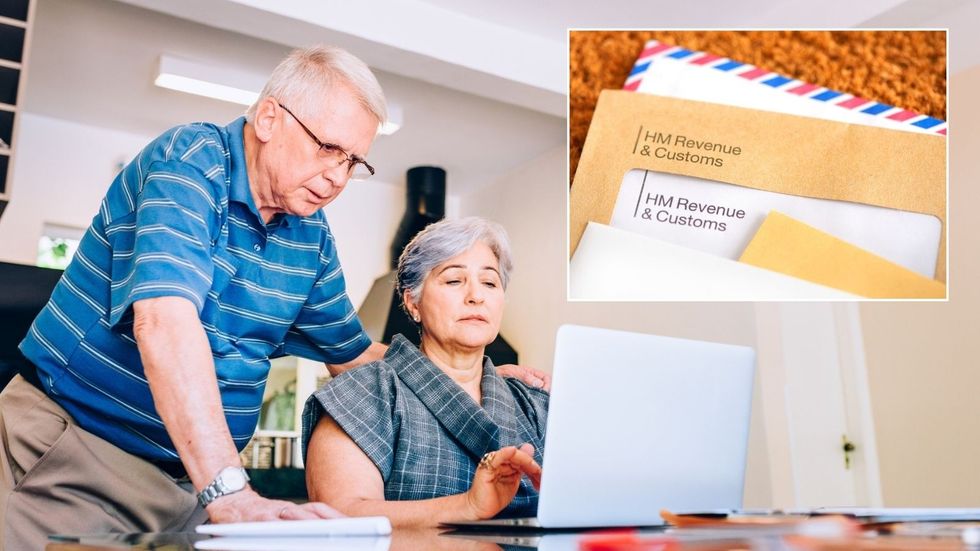As millions of taxpayers rush to meet the self-assessment deadline, they risk fines of up to £900, with some accusing HMRC of deliberately lowering the quality of its phone services.
With just days remaining until the January 31 deadline, Parliament’s spending watchdog has raised serious concerns about HMRC’s customer service strategy.
More than 8.6 million people have already submitted their returns, but those yet to file face mounting pressure as phone support becomes increasingly difficult to access.
The public accounts committee (PAC) has accused HMRC of intentionally running down its phone services to force people towards online channels, a move they say “has damaged trust in the tax system.”
However HMRC hit back at the suggestion it had deliberately made its customer service worse, calling it a “completely baseless” accusation.
Those who miss the deadline face an immediate £100 fixed penalty, even if there is no tax owed or if the tax due is paid on time. After three months, additional daily penalties of £10 will be applied, up to a maximum of £900.

Further penalties kick in after six months, with a charge of five per cent of the tax due or £300
GETTY
Further penalties kick in after six months, with a charge of five per cent of the tax due or £300, whichever is greater. If the return remains unfiled after 12 months, another five per cent or £300 charge will be added, whichever is greater.
Sir Geoffrey Clifton-Brown MP, chair of the committee, said: “Given that citizens have no choice but to engage with HMRC, it has a responsibility to aspire to the highest standards of service. Unfortunately, what we have instead is a tax authority excavating its way to new lows in service levels every year.
“Worse, it seems to be degrading its own services as a matter of policy. HMRC is an organisation in defensive mode and needs bold and ambitious leadership to begin to chart its recovery.”
HMRC has stated it will consider individual circumstances for those unable to pay their tax bill or arrange a payment plan by the deadline.
LATEST DEVELOPMENTS:
The scale of HMRC’s service decline has been laid bare in the PAC’s report, which found average call waiting times exceeded 23 minutes – up from just over 16 minutes the previous year and a little over 12 minutes in 2021-22. In 2018-19 it was about five minutes.
In the first 11 months of 2023-24, HMRC terminated 43,690 calls from customers who had been waiting for 1 hour and 10 minutes – a 535 per cent increase from the previous year’s 6,875 terminated calls.
The Department answered just 66.4 per cent of customers’ attempts to speak to an adviser, falling well short of its 85 per cent target.
New data reveals HMRC staff answered just 16million customer calls last year, down from 33million in 2015, according to figures obtained through a Freedom of Information request by AJ Bell.
While advisors spent over four million hours handling calls in 2023-24, the unchanged time spent suggests each call is taking twice as long to resolve.
Adding to taxpayers’ concerns, HMRC is set to increase its late payment interest rate by 1.5 percentage points to 8.75 per cent from April – the highest since 1992.
Last year, nearly 100,000 workers were fined for late self-assessments despite owing no tax, though a record 36,000 of these were later cancelled following helpline delays.
Jim Harra, HMRC’s chief executive strongly rejected the accusations, stating: “The committee’s claims about our customer service are completely baseless.
“In reality we’ve made huge improvements to our service standards, with call wait times down by 17 minutes since April last year.”
HMRC claims its latest figures show average waiting times have decreased to about 11 minutes, compared with about 28 minutes the previous April.
Harra added: “We will always be there to answer the phone for those who need extra help. At the same time, more than 80 per cent of customers are satisfied with our digital services.”
For those yet to file, HMRC advises using digital resources available on GOV.UK, including live webinars, video tutorials and online help sheets.
The HMRC app and Personal Tax Account provide instant access to Unique Taxpayer References, Self Assessment payments, and employment history information.
Additional support is available through voluntary and community sector organisations for those needing extra assistance. Taxpayers can also follow @HMRCcustomers on Twitter for the latest updates on Self Assessment services. HMRC’s digital assistant can help find information, with the option to speak to an adviser during Webchat opening times.